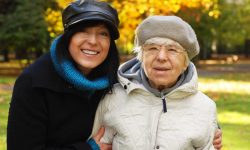Latest News from Everycare
Care England has called for a move away from a “crisis orientated system” to one which “maintains choice, autonomy and control” to resolve long-standing issues in the adult social care market as a result of Covid-19.
In its submission to the Public Accounts Committee, Care England stated funds and commissioning models had not been capable of responding to a new reality caused by Covid-19.
It said ‘a commissioning system needs to be created to be responsive to the needs of the sector, both in terms of continuing healthcare and local authority funded rates’.
Professor Martin Green, chief executive of Care England, said: “With the Public Accounts Committee’s great standing and reputation for holding bodies to account, we hope this inquiry will encourage a change in commissioning processes in order to support provider sustainability.
“The COVID-19 pandemic has accentuated the importance of creating markets that support rather than undermine the adult social care sector’s development.
“We need a new vision for adult social care, one that focuses on moving from a crisis orientated system to one that is asset-based and maintains choice, autonomy and control for people as much as possible. It must also deliver services that are connected to the heart of local communities.”
The adult social care markets inquiry will examine:
• how adult social care is currently provided and structured
• DHSC’s effectiveness in overseeing the market and holding providers to account; and its understanding of future demand, costs and alternative delivery models
• the impact of COVID-19 on the market and the sector’s financial sustainability
“For too long, adult social care commissioning has, in many parts of England, served to merely undermine provider sustainability,” added Professor Green.
The Public Accounts Committee will question Chris Wormald and Michelle Dyson from the DHSC and Ian Trenholm, chief executive of the Care Quality Commission.
The adult social care markets virtual meeting is available for the public to watch on 19 April at 2:30 pm.
For more information, go to https://committees.parliament.uk/event/4088/formal-meeting-oral-evidence-session/
This news was provided by homecare.co.uk
Comic legend Sir Lenny Henry has joined with ‘12 Years a Slave’ actor Chiwetel Ejiofer, actress Thandie Newton and other black celebrities to urge black Britons to have the coronavirus vaccine.
TV comic legend Lenny Henry reads his letter in the short film. Credit: DHSC
Sir Lenny Henry has written an open letter urging black Britons to go and have the COVID-19 vaccine and a short film based on his letter will be aired on Channel 5 and Sky between 8pm and 9.30pm tonight (30 March).
’When your turn comes take the vaccine’
Sir Lenny Henry’s letter includes the words: ‘Dear mums, dads, grandparents, uncles, aunties, brothers, sisters, nephew, nieces, daughters, sons and cousins. We love you!
‘And we want to see you again. Covid-19 has kept us apart for far too long. We want to hug you, we want to celebrate with you, we want to go out for dinner with you, we want to worship with you, we want to go and watch football and cricket with you, we want to beat you at video games – in the same room so we can see the look on your face when we do.
‘But in order to do all that – we all need to take the Covid-19 jab. It’s all of us in this together.
To read the full story visit the homecare.co.uk website.
Captain Sir Tom Moore, who raised over £32m for NHS charities by walking a hundred laps of his garden in Bedfordshire, has died in hospital after testing positive for COVID-19.
The 100-year-old, who was knighted for his fundraising efforts by the Queen last year, brought hope to people during lockdown.
He had been unable to have the Covid vaccine as he had been struggling with pneumonia over the past few weeks. On Sunday he was admitted to Bedford Hospital as he needed help with his breathing.
In a statement, Capt Sir Tom’s daughters, Hannah Ingram-Moore and Lucy Teixeira said: “It is with great sadness that we announce the death of our dear father, Captain Sir Tom Moore.
To read the full story visit the homecare.co.uk website.

The Department for Health and Social Care has written to local authorities, care providers and directors of adult social services in England providing details on how all frontline social care workers will be contacted to receive their offer of vaccine by mid-February.
In her letter written by the care minister, Helen Whateley expresses her concern that ‘the social care sector is even more diverse than healthcare’ with a large number of different private companies and individual service users being used in the care sector.
In recognition of this, the department has produced a standard operating procedure (SOP), which provides detail on how community-based social care workers in JCVI priority group 2 will receive a vaccine.
This is to ensure all frontline workers who have close personal contact with those who are clinically vulnerable to COVID-19 are vaccinated by 15 February.
For more information visit the homecare.co.uk website


